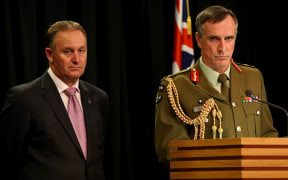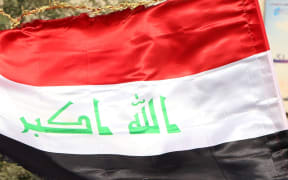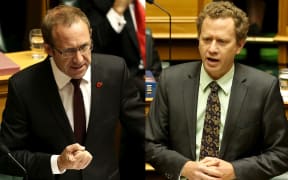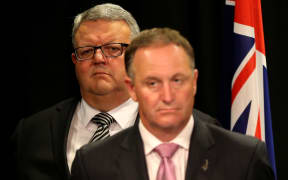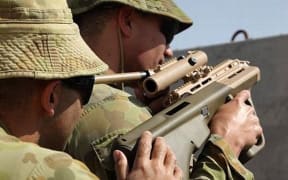Why is New Zealand responding to atrocities by Islamic State in Iraq and Syria, when there are several other countries practising human rights abuses?
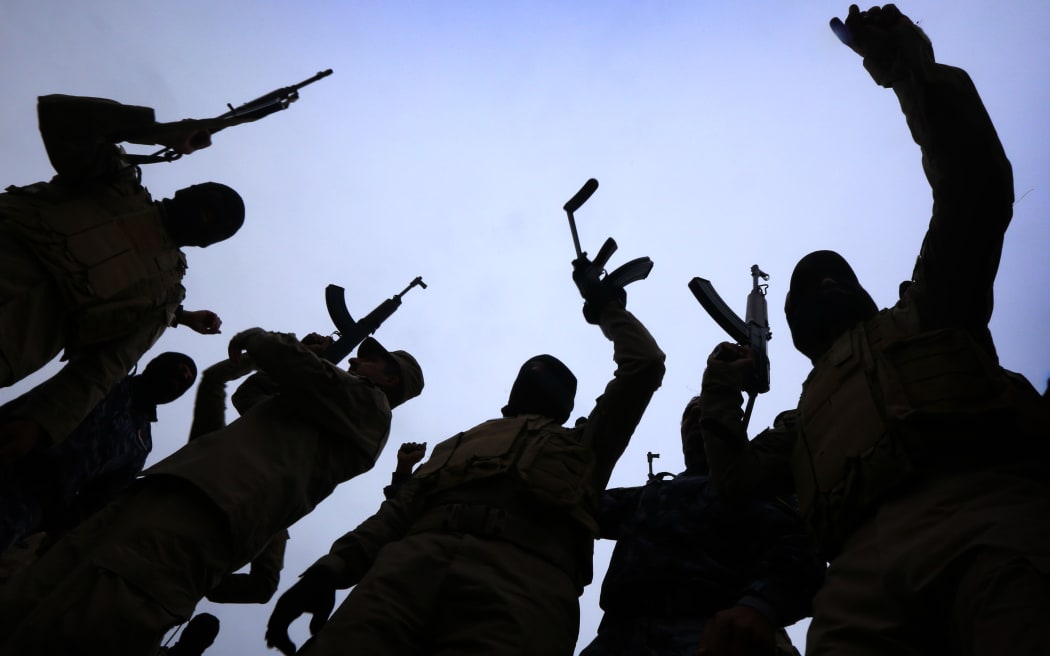
Iraqi policemen raise their weapons during a training session as they prepare to recapture Mosul from Islamic State fighters. Photo: AFP
One obvious answer is that the United States is not leading coalition efforts against the Indonesian Government for its actions in West Papua, Boko Haram's kidnappings in Nigeria and state authorities in Saudi Arabia, which regularly carry out beheadings.
The question has been put to the Prime Minister. In response he insists Islamic State poses one of the greatest international threats ever seen.
And John Key has steadily built the case that all countries could end up as targets of Islamic State, as demonstrated by attacks in Australia and Canada, as well as a watch list of New Zealanders deemed to pose a risk to public safety.
No-one denies the actions of Islamic State are repugnant and frightening, or that its use of the internet and social media greatly enhances its image of a group willing to take any action needed to pursue its violent agenda.
But is that enough to convince the New Zealand public that warrants sending 143 New Zealanders into a volatile and potentially dangerous situation.
The benefit provided by just 16 specialist trainers in the 143-strong deployment is also untested, and will only be shown to be a success, or otherwise, at the end of the two year mission.
Since the possibility of a training mission was raised, opposition parties have repeatedly made the point that the United States has spent ten years and billions of dollars training the Iraqi Army, which remains divided, riven with corruption, and poorly trained.
New Zealand says it is satisfied with the assurances that the new Iraqi administration under Haider al-Abadi is committed to scouring out corruption in the security forces and rebuilding civil institutions.
This Government argues the first step in achieving that is building the capability and professionalism of the security forces, as the basis of a stable society.
All worthy sentiments, but the question remains why the Government is focused on a conflict that many New Zealanders would still see as being distant from this country, and this region.
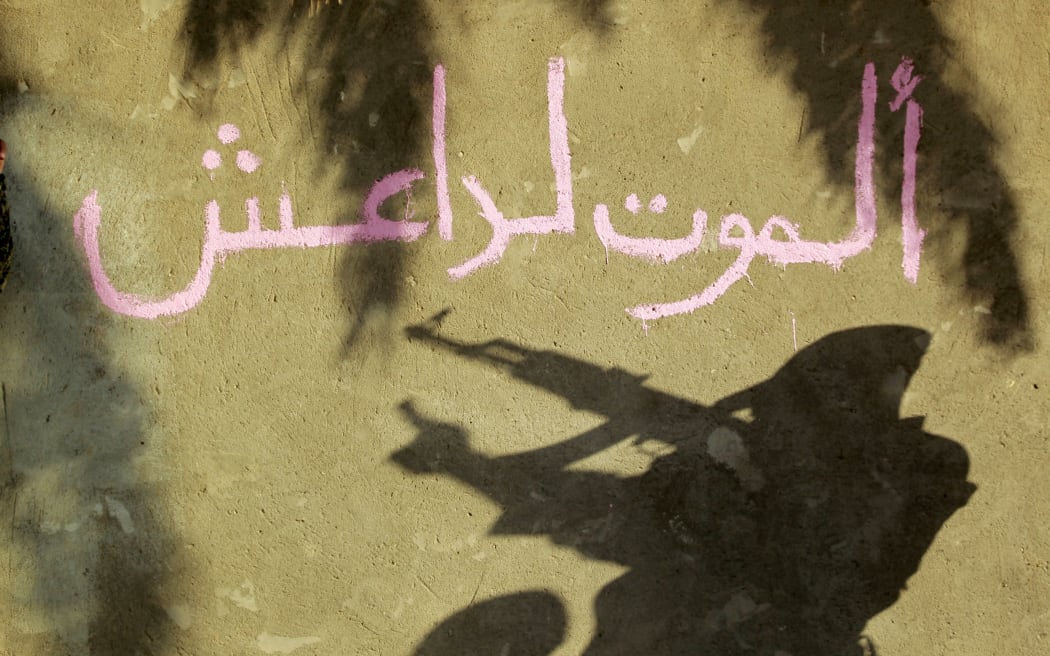
Arabic grafitti reads "Death to the Islamic State". Photo: AFP
And there are several practical issues that have not been resolved, with the initial deployment starting in a matter of weeks.
Most significant is the legal protection given to soldiers serving on the ground in Iraq.
A full status of forces agreement is negotiated between the host and the country sending in combat troops - this would give troops legal protection while on base, or on duty off the base, and they would be dealt with under the legal system of their home country.
Iraq has been reluctant to strike such deals and as a compromise, Australian Special Forces on the ground operate under diplomatic passports - the option that looks most likely to be extended to New Zealanders.
Phil Goff, a former Foreign Affairs and Defence Minister under Labour's Helen Clark, says that makes a mockery of the long established diplomatic convention, dubbing it a 'mickey mouse' set up.
He adds it does not afford adequate protection, and is not fair on the men and women who will be sent to Iraq on the orders of their government.
What we do know is that New Zealand soldiers will have the right to defend themselves, they will be armed, and the trainers will be protected by regular force army soldiers.
They are to stay 'behind the wire' - that is within the confines of the Taji Military Camp north of Baghdad.
But if there's a firefight up the road and Iraqis are being overwhelmed, the Kiwis will not be able to go to their aid, in stark contrast to the way the SAS in particular operated in Afghanistan, fighting alongside Afghan police in the Crisis Response Unit.
The other risk, as demonstrated in Afghanistan, is the risk of green on blue attacks - Iraqi soldiers turning their weapons on their New Zealand trainers, against which being 'behind the wire' gives no protection at all.
Mr Key has acknowledged this as one of the greatest risks to the deployment, on the basis the troops will not be exposed to open combat in the field, and the likes of Improvised Explosive Devices.
The Prime Minister has done his best to present a mission that is as low risk as it can be while sending a contingent of soldiers into an unpredictable and highly dangerous environment.
In the back of his mind must lurk the tainted legacies of Tony Blair, George W Bush and John Howard and the public backlash in their respective countries as a result of the 2003 invasion of Iraq.
John Key will hope this deployment casts him in a better light in the years to come.
